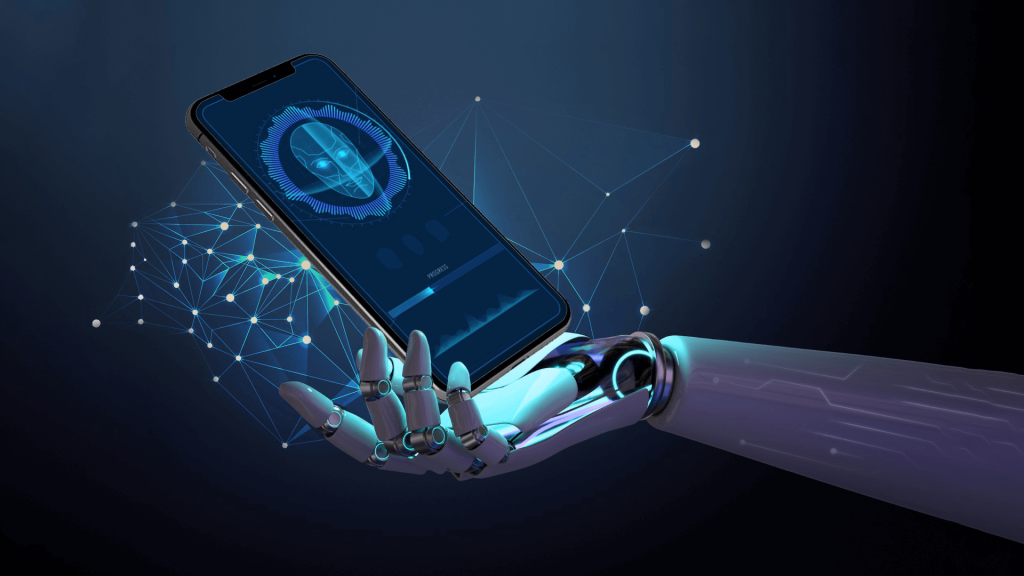Unlocking Time Future AI Tools and Trends in Time Management

Evolving Time Management through AI Innovation
The landscape of time management is undergoing a significant transformation, influenced heavily by the advancements in artificial intelligence (AI). Previously, effective time management revolved around tools like calendars, planners, and straightforward to-do lists. However, today’s emerging AI tools push beyond traditional methods, embracing sophisticated capabilities that enhance productivity and personal efficiency in unprecedented ways.
As we look toward the future, there are several pivotal trends shaping our approach to time management. These trends not only promise to streamline our daily routines but also help us to reclaim precious hours throughout our days. Below, we explore some key developments:
- Smart Scheduling: AI-powered applications like Google Calendar and Microsoft Outlook now employ algorithms that analyze user habits, preferences, and even external factors such as weather conditions or traffic patterns. By processing this information, these tools can create optimized schedules that accommodate not only work commitments but also personal activities, making it easier to maintain a healthy work-life balance. Imagine an AI that suggests the best time for you to schedule your project meetings based on when you’re typically most productive.
- Task Automation: Repetitive tasks, such as data entry or email sorting, can consume significant time without adding much value. Tools like Zapier and Automate.io are utilizing AI to automate these mundane processes. By connecting various apps and automating workflows, professionals can focus on high-priority projects that require creativity and critical thinking, ultimately leading to satisfying and impactful work.
- Data-Driven Insights: With the power of advanced analytics, businesses and individuals can gain a clearer understanding of how they spend their time. AI tools like RescueTime or Clockify track productivity patterns, identifying time-wasting activities in real-time. By analyzing the extensive data collected, they provide actionable recommendations that help users make informed decisions about how to adjust their schedules and activities for improved efficiency.
The impact of these technologies is already being felt across various industries. A recent survey indicated that over 70% of businesses utilizing AI for time management have reported noticeable increases in efficiency. From small startups to large corporations, these tools are helping employees manage workloads more effectively, thereby enhancing job satisfaction and retention rates.
Given the vast implications of AI in time management, it is clear that these innovations will primarily benefit everyone, from busy professionals grappling with overwhelming tasks to expansive organizations striving for greater productivity. The journey into the future of time management is filled with exciting possibilities, as further exploration of these AI tools will unveil how we can better manage our most valuable resource: time.
CHECK OUT: Click here to explore more

Revolutionizing Productivity with AI-driven Tools
The influence of AI on time management is evident across numerous sectors, marking a shift from conventional practices to innovative solutions that empower individuals and organizations to optimize their efficiency. As we delve deeper into AI-driven tools, we uncover several groundbreaking innovations that are shaping the future of how we manage our time.
Intelligent Prioritization
In an increasingly chaotic work environment, intelligent prioritization emerges as a game-changer. AI tools, such as Todoist and Trello, now feature smart algorithms that assess task urgency and importance. By analyzing deadlines, workload, and even the user’s productive times, these applications can suggest a customized priority list. For instance, if a user has a report due tomorrow but multiple other tasks on their list, the AI prioritization tool will flag the report as a top priority while suggesting optimal time slots for the remaining tasks. This ensures that important tasks are attended to promptly, alleviating stress and enhancing focus.
Virtual Assistants: Your Time Management Ally
The rise of virtual assistants powered by AI has transformed how professionals approach time management. Tools like Amazon Alexa for Business and Google Assistant enable users to integrate their calendars, set reminders, and even manage meetings through simple voice commands. In a poll conducted by **Statista**, it was reported that 32% of U.S. adults utilize smart assistants for organizational tasks. This trend hints at a growing reliance on technology to streamline the management of our daily to-dos. Imagine asking your assistant to schedule a follow-up meeting, and it autonomously finds a suitable time for all parties involved while also considering your preferences.
Collaborative Productivity Platforms
Today’s workforce often requires seamless collaboration among multiple team members, and AI tools are stepping up to facilitate this need. Platforms like Slack and Microsoft Teams leverage AI to enhance communication and streamline project management. These tools automatically summarize discussions, highlight key decisions, and even predict project timelines based on past performance. Utilizing such technology can greatly reduce miscommunication and ensure everyone is on the same page, ultimately saving time and boosting overall productivity.
The Importance of Adaptive Learning Systems
As the complexity of projects increases, the need for adaptive learning systems becomes apparent. AI systems that learn from user behavior and preferences provide highly personalized experiences. Tools like Notion and Asana leverage machine learning to tailor suggestions and workflows based on what has proven effective for the individual user previously. These adaptive solutions can help users overcome learning curves and consistently work efficiently without needing to relearn processes.
As the nexus of technology and time management continues to evolve, the tools available to professionals are likely to expand even further. AI technology is not just enhancing productivity; it is redefining the way we perceive and value the time we spend on tasks. With the implementation of these advancements, the future promises an even more dynamic landscape where managing time effectively will be paramount in achieving success.
Unlocking Time Future AI Tools and Trends in Time Management
As we delve deeper into the realm of time management, it becomes apparent that leveraging artificial intelligence (AI) can significantly enhance our productivity and efficiency. The integration of AI tools in time management systems is a game changer, offering novel solutions that personalize our organizational habits. Below, we present a table highlighting essential categories and advantages related to these transformative trends.
| Category | Key Features |
|---|---|
| Automated Scheduling Tools | Utilize AI algorithms to manage and optimize your calendar by scheduling meetings and deadlines automatically. |
| Smart Time Tracking | Track and analyze time spent on tasks, allowing for better allocation of resources and identification of productivity bottlenecks. |
These innovative tools not only streamline daily tasks but also enable users to make informed decisions about their time. With AI’s ability to learn from user habits, professionals can better understand how to allocate their time more effectively. In a world that continuously demands efficiency, adapting to these AI-driven trends becomes essential for maintaining a competitive edge.
SEE ALSO: Click here to read another article
Empowering Individuals with Predictive Analytics
One of the most significant trends in time management empowered by AI is the use of predictive analytics. These advanced systems analyze historical data and behavioral patterns to forecast future trends, enabling users to manage their time more effectively. By leveraging tools such as Clockify and RescueTime, individuals can gain insights into their productivity habits, revealing patterns that might not be immediately obvious. For example, by examining work habits over weeks or months, these tools can highlight when users are most productive, allowing them to schedule important tasks during peak performance times.
Automated Time Tracking
The traditional method of logging hours spent on tasks can be cumbersome, often deterred by the tedium of manual entries. AI has revolutionized this process with automated time tracking solutions like Toggl and Time Doctor. Utilizing machine learning algorithms, these tools can run in the background, automatically recording time spent on various applications and projects. This information is invaluable not only for personal productivity assessments but also for managers looking to optimize team output. Research indicates that organizations employing automated time tracking report a 24% increase in productivity, a statistic that underscores the transformative potential of AI in time management.
Enhanced Focus with AI-Powered Workflows
In a world rife with distractions, staying focused is a critical challenge for professionals across industries. AI-powered workflows are designed to assist users in this respect. Tools like Focus@Will and Brain.fm utilize AI algorithms to curate music and soundscapes specifically engineered to enhance concentration and productivity. These platforms adapt audio suggestions based on users’ responsiveness, creating an immersive environment conducive to focus. The application of personalized audio aids can lead to a noticeable boost in work efficiency, with studies showing that individuals can experience a productivity improvement of approximately 30% when working in such optimized settings.
Time Management Insights through AI Analytics
Data analytics is yet another facet of AI that is transforming time management. Tools like Monday.com and SmartSheet offer dashboards that present important metrics around time usage and project deadlines. By implementing these analytics capabilities, businesses can identify bottlenecks in workflows and allocate resources more effectively. For instance, if a particular project phase consistently falls behind schedule, managers can drill down into the metrics to uncover the underlying causes and take corrective action. This data-driven approach to time management not only boosts operational efficiency but also enhances decision-making processes, equipping teams with the insight they need to succeed.
The Growing Role of AI in Work-Life Balance
In today’s fast-paced professional landscape, maintaining a healthy work-life balance is crucial. AI tools are increasingly being developed to assist users in achieving this balance. Applications like TimeOut and Focusmate promote scheduled breaks, suggesting short intervals during which users should step away from their tasks. By identifying when a user’s productivity lags, these apps can prompt well-timed pauses, effectively countering burnout and fostering a healthier work environment. This approach aligns with research from the American Psychological Association, which notes that taking regular breaks can significantly improve overall job satisfaction and productivity.
As AI tools continue to evolve, it’s clear they are not merely improving efficiency but are also reshaping our relationship with time itself. The integration of these advanced technologies heralds a future where managing our time becomes both intuitive and highly effective, allowing individuals to focus on what truly matters in their personal and professional lives.
CHECK OUT: Click here to explore more
Conclusion: The Future of Time Management Through AI Innovation
As we stand on the brink of a new era in time management, the integration of AI tools and innovative trends is undeniably reshaping how individuals and organizations approach their schedules and productivity. From predictive analytics that unveil hidden patterns in our work habits to automated time tracking systems that eliminate the drudgery of manual entries, the advancements in technology are streamlining our processes and enhancing efficiency.
The focus on maintaining personal well-being is equally appreciable; AI-driven solutions that encourage scheduled breaks and optimize focus create an environment conducive to success. With tools like Focusmate promoting balance and mental health, we are witnessing a paradigm shift in how we perceive work-life harmony. This holistic approach not only fosters increased output, demonstrated by a reported 30% improvement in productivity, but also cultivates a workforce that thrives in both professional and personal realms.
Looking forward, the potential of AI in time management appears limitless. As organizations leverage data analytics to refine their workflows and become more adaptive to ever-changing demands, the importance of human collaboration and innovation remains a foundational element. The convergence of AI technologies is paving the way for a future where time management becomes less of a chore and more of an art, allowing us to make the most of every moment.
In an age where time is synonymous with opportunity, embracing these tools and trends will not only unlock greater efficiency but will also empower individuals to lead more fulfilling lives. Now is the time to explore these advancements further and discover how they can best fit into your unique time management strategy.



